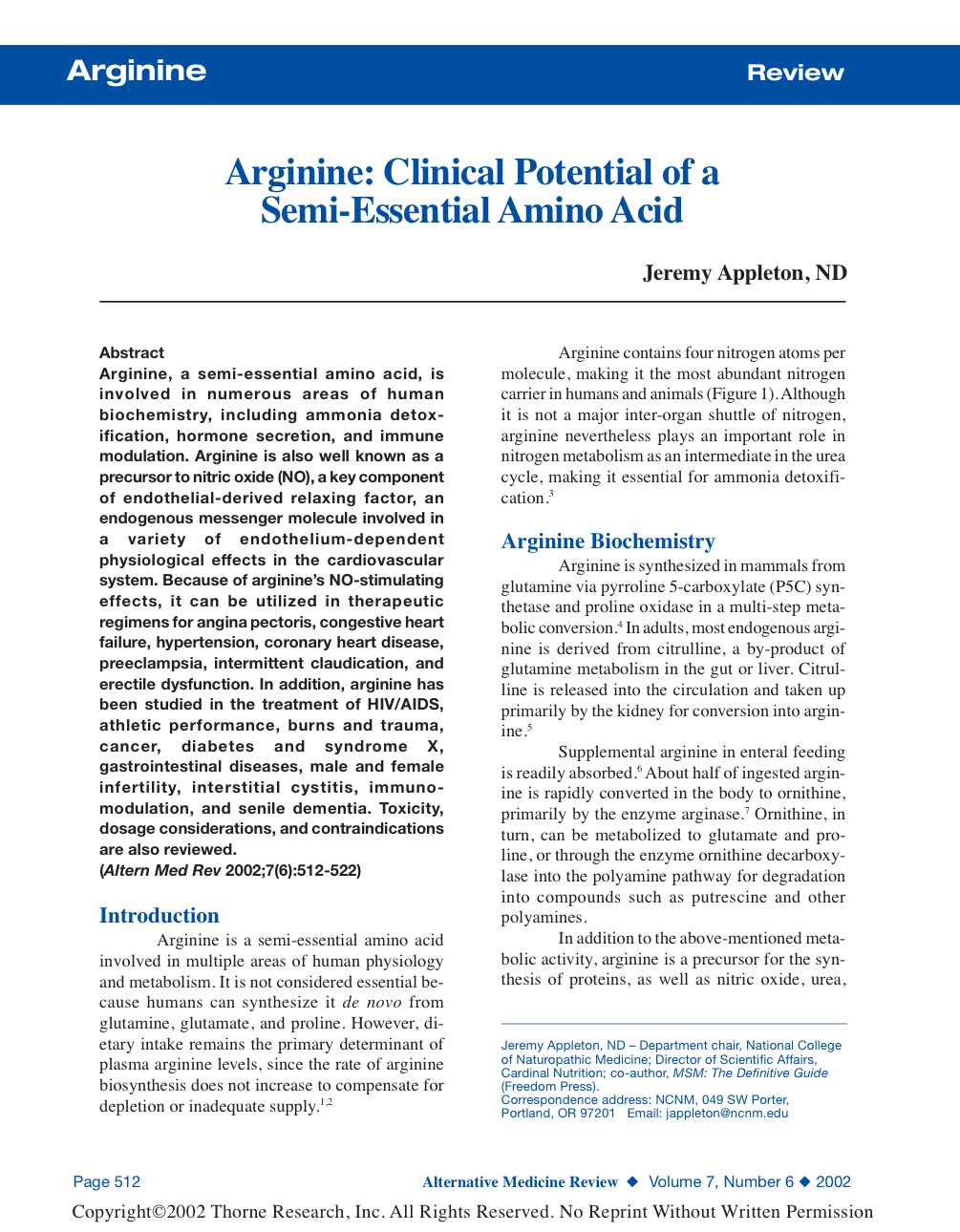Abstract
Arginine, a semi-essential amino acid, is involved in numerous areas of human biochemistry, including ammonia detoxification, hormone secretion, and immune modulation. Arginine is also well known as a precursor to nitric oxide (NO), a key component of endothelial-derived relaxing factor, an endogenous messenger molecule involved in a variety of endothelium-dependent physiological effects in the cardiovascular system. Because of arginine’s NO-stimulating effects, it can be utilized in therapeutic regimens for angina pectoris, congestive heart failure, hypertension, coronary heart disease, preeclampsia, intermittent claudication, and erectile dysfunction. In addition, arginine has been studied in the treatment of HIV/AIDS, athletic performance, burns and trauma, cancer, diabetes and syndrome X, gastrointestinal diseases, male and female infertility, interstitial cystitis, immuno-modulation, and senile dementia. Toxicity, dosage considerations, and contraindications are also reviewed. (Altern Med Rev 2002;7(6):512-522)

